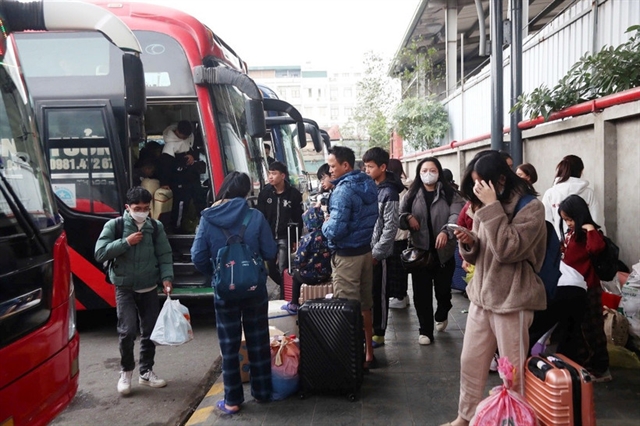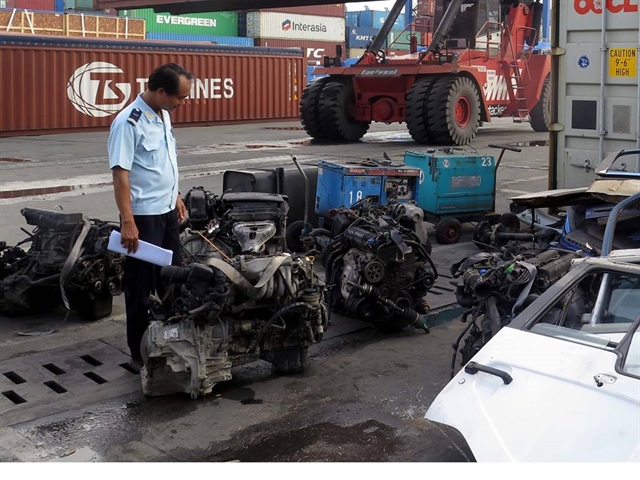 Society
Society
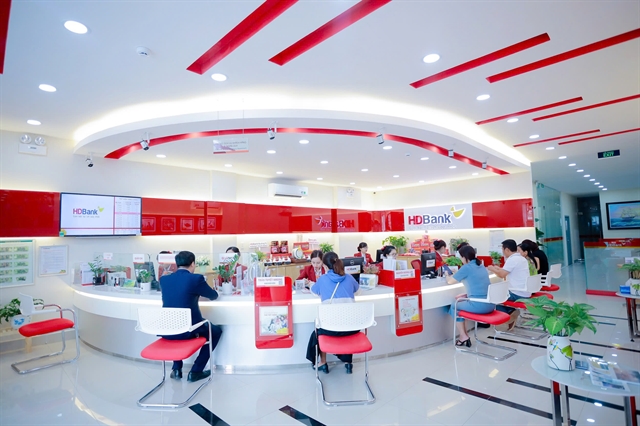
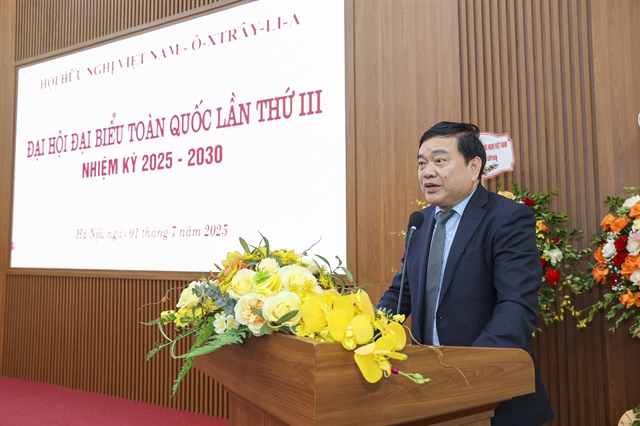
|
| Professor Trần Thọ Đạt, Chairman of the Scientific and Training Council at the National Economics University, has been elected President of the Việt Nam-Australia Friendship Association for the 2025–30 term. — Photos courtesy of the Việt Nam Union of Friendship Organisations |
HÀ NỘI — Professor Trần Thọ Đạt, Chairman of the Scientific and Training Council at the National Economics University, has been elected as President of the Việt Nam-Australia Friendship Association for the 2025–30 term.
He was elected on Monday when the Việt Nam-Australia Friendship Association convened its third National Congress in Hà Nội for the 2025–30 tenure.
Delegates also elected the association’s fourth Executive Committee, comprising of 40 members.
During the congress, delegates reached consensus on the strategic direction and priorities for the coming term, with a strong emphasis on enhancing people-to-people diplomacy.
The association aims to foster tourism ties, cultural exchanges and inter-community engagement, while deepening collaboration between localities and friendship organisations in both countries.
The efforts seek to strengthen mutual understanding and the enduring friendship between the peoples of Việt Nam and Australia.
The association also reaffirmed its commitment to promoting people’s diplomacy as a tool for advancing Việt Nam’s socio-economic development through to 2030, in line with Directive No 15-CT/TW.
This is seen as a vital contribution to the country’s goal of becoming a modern industrialised nation with upper-middle income by 2030.
In partnership with the Vietnamese Embassy in Australia and other stakeholders, the association will continue communication efforts to raise awareness and encourage responsibility among Vietnamese students and workers in Australia.
It aims to build and nurture solidarity with the Australian people, while also supporting the safeguarding of Việt Nam’s territorial integrity.
The association also plans to strengthen ties with the Vietnamese community in Australia, promote information-sharing and disseminate the Party and State’s policies for overseas Vietnamese.
It will encourage the Vietnamese community to comply with local laws, maintain strong connections with the homeland, contribute to bilateral friendship efforts and assist Australian businesses seeking market opportunities in Việt Nam.
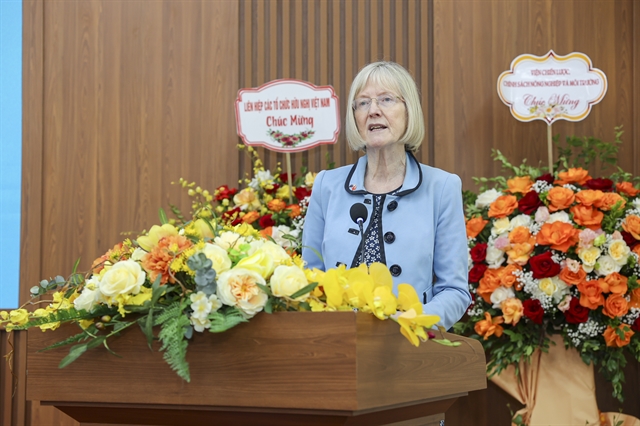
|
| Australian Ambassador to Việt Nam, Gillian Bird at the Việt Nam-Australia Friendship Association's third National Congress on Monday. |
Speaking at the congress, Australian Ambassador to Việt Nam, Gillian Bird, emphasised the deep-rooted connections between the two countries, not only in terms of strategic and economic partnerships but also through strong people-to-people linkages.
The connections will continue to play a vital role in strengthening the Australia-Việt Nam partnership, she said, adding that Australia looks forward to further cooperation with Việt Nam, the Việt Nam Union of Friendship Organisations (VUFO), and the Việt Nam-Australia Friendship Association to deepen the relationship between the two nations and their peoples.
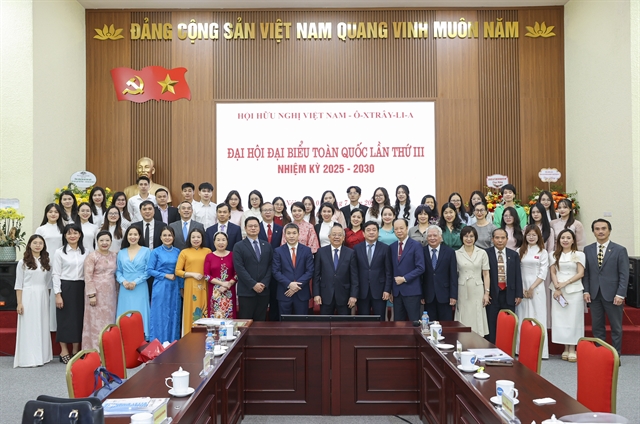
|
| Participants at the congress. |
Phan Anh Sơn, President of VUFO, congratulated the newly elected Executive Committee and those appointed as President and Vice Presidents of the association for the new term.
He said the congress was taking place at a pivotal time, as Việt Nam undergoes a major transformation and enters a new era of growth.
“In such a context, diplomatic work, particularly people’s diplomacy, assumes even greater significance and broader responsibilities,” he said.
He also highlighted the favourable context of Việt Nam–Australia relations, which have recently seen a number of key milestones marking a new phase of development.
He said he hoped that the association would capitalise on its existing advantages and further promote people-to-people diplomacy to expand cooperation between localities, businesses and organisations in both countries.
The aim, he said, is to foster a comprehensive bilateral partnership that meets the evolving demands of collaboration and development in today’s world.— VNS


